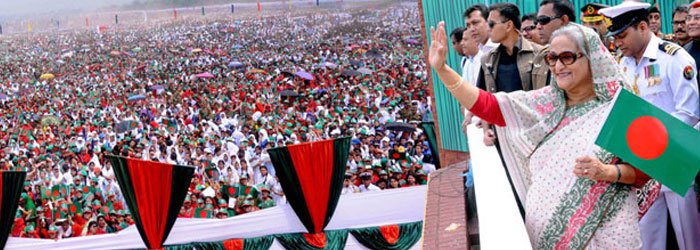-
- About Us
- Our services
-
Higher Offices
District/Divition
Department/Division/Ministry
- e-Services
- Gallery
-
Contact
Official Communication
Communication Map
-
- About Us
- Our services
-
Higher Offices
District/Divition
Department/Division/Ministry
- e-Services
-
Gallery
Photo Gallery
Video Gallery
-
Contact
Official Communication
Communication Map
Urban Sanitation
The sanitation system shall have to be self-sufficient and self-sustaining. Sanitary latrine in every household will be promoted. Along with individual sanitation, public and community latrines will be set-up by City Corporation/Pourashabha and leased out to private sector for maintenance.
The City Corporation or Pourashabhas shall be responsible for solid waste collection, disposal and their management.
The role of women in the process of planning, decision making and management shall be promoted through their increased representation in management committees/boards (Pourashava/WASA).
Drainage system in the cities and municipalities will be integrated with the overall drainage system with the coordination of Ministry of Water Resources.
Private sector and NGO participation in sanitation will be encouraged.
Behavioral development and changes in user communities shall be brought about by social mobilization and hygiene education.
Measures will be taken to recycle, as much as possible, waste materials and to prevent contamination of groundwater by sewerage and drainage.
Urban Water Supply
In order to make the water supply system sustainable water would be supplied at cost. However, educational and religious institutions will be provided with water as per existing government rules..
In the future water tariff shall be determined on the basis of the cost of water production, operation and maintenance, administration and depreciation.
Water supply and Sewerage Authorities (WASAs) shall be responsible for sustainable water supply in the metropolitan areas where WASAs exist while in other urban areas the Pourashabhas with the help of DPHE shall be responsible for the service.
WASAs and Pourashabhas shall improve their operational efficiency including financial management.
Private sector participation will be promoted.
Monitoring of water quality for the purpose of ensuring an acceptable standard will be the responsibility of DPHE, DOE, BSTI, Atomic Energy Commission (AEC) and CBOs and they will send their reports to the water quality control committee in the Local Government Division.
WASAs and relevant agencies shall support and promote any collective initiative in slums and squatters in accessing water supply services on payment.
WASAs, DPHE, BUET and AEC shall conduct research and development activities for the development of appropriate technologies and other developments with special emphasis on difficult and under-served areas. They shall share the results of research and development and provide technical support to the private sector.
Efforts shall be made to upgrade the capacity of the Pourashabhas and WASAs for planning, designing, implementation, management and human resource development and the DPHE shall have appropriate institutional linkage for this purpose.
NGOs will play appropriate role in undertaking motivational activities.
Planning and Implementation: Cabinet Division, A2I, BCC, DoICT and BASIS





